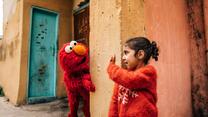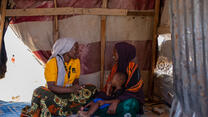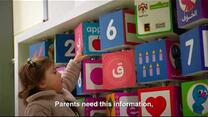As over a million children in Gaza continue to bear the brunt of conflict, and an entire generation of Syrian children solemnly mark 13 years of protracted crisis, the International Rescue Committee (IRC) and Sesame Workshop urge the global community to invest in new approaches to crisis-response as evidenced in a landmark report Transforming Tomorrow: Innovative Solutions for Children in Crisis.
The report draws on the successes of the Ahlan Simsim initiative—the largest early childhood development (ECD) intervention in the history of humanitarian response—reaching millions of children and caregivers across the Middle East with the support they need to learn, grow and thrive. Experts involved with Ahlan Simsim have outlined crucial learnings and recommendations for what it takes to deliver innovative solutions in the most complex settings and to sustain impact for children. With more than 460 million children across the world currently living in conflict zones, the report’s findings offer hope for some of the world’s biggest challenges today–extending far beyond the region and the early childhood sector.
Transforming Tomorrow is a blueprint for how to think differently to deliver transformational change, even in the most difficult circumstances. The report concludes with a set of recommendations (including the three below) that have timely relevance for funders, policymakers, and implementers.
- DEDICATE FOCUS TO CHILDREN AND CAREGIVERS: Establish effective strategies to meaningfully engage affected communities. Establish or empower specific forums for assessing the comprehensive needs of children and caregivers—who are predominantly women—where related challenges and solutions can be discussed. This can be achieved by mandating interdisciplinary decision making across education, health, nutrition and protection policy and programming. Ensure that funds allocated will maximize the needs and voices of the most marginalized.
- FUND NIMBLE SOLUTIONS: Enable investment strategies that encourage prototyping, micro-pilots and pivots. Structure funding investments around outcomes-driven approaches to be responsive to changing contexts and unforeseen opportunities. This means encouraging adaptive management practices and shoring up risk appetite for testing. Failure should be seen as a route to learning and iterating. Develop infrastructure and accountability to guide funding that puts the outcomes and the needs of people at the center rather than assumed solutions.
- LINK FUNDING, RESEARCH, AND DATA: Fund evidence generation to learn what works, for whom and at what cost, linked to data-based needs. Allocate funding for evidence generation specifically in humanitarian settings. This requires increasing commitment to learning and research that leads to improved practice and policy. Invest in collecting and generating population data as well as monitoring and learning feedback across the lifecycle, disaggregated by gender, age, and ability.
To learn more, the Ahlan Simsim initiative visit https://www.rescue.org/ahlansimsim.
Video following 6-year-old Mohammed in Lebanon as he participates in the Ahlan Simsim remote preschool program: Ahlan Simsim’s Remote Early Learning Program: Significant Impact on Child Learning
Video that follows one and a half year old Ayla and her mother, as they gain from Ahlan Simsim’s work in Jordan’s primary healthcare centers: Ahlan Simsim: A bright future for Ayla



